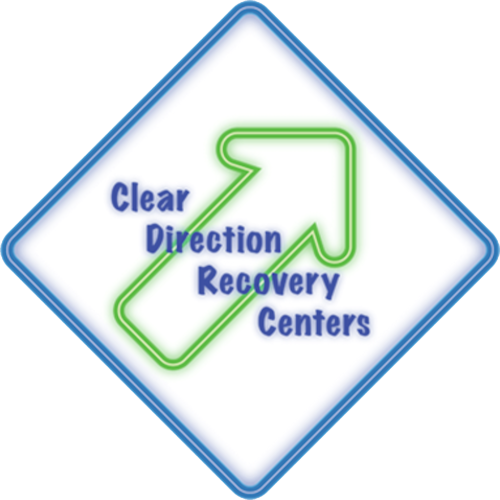When searching for addiction treatment, the variety of program types can feel overwhelming. Terms like “Intensive Outpatient Program” (IOP) and “Outpatient Program” (OP) may appear similar at first glance, but they represent distinct levels of care with unique structures, time commitments, and benefits. Knowing the difference between IOP and OP can help you make an informed decision that matches your personal needs, recovery goals, and lifestyle.
At Clear Direction Recovery Centers, we offer both IOP and OP services in New Jersey, providing flexible and personalized care options for individuals at various stages of recovery. Whether you’re stepping down from a more intensive program or starting your journey at an outpatient level, understanding these treatment types will empower you to choose the path that works best for you.
The main difference between IOP and OP lies in the intensity and structure of the program.
Intensive Outpatient Program (IOP):
- Higher level of care than standard outpatient treatment.
- Typically, three to five days per week, several hours each day.
- This approach provides more clinical support while allowing clients to live at home.
- Recommended for those transitioning from inpatient or residential care or those who need more structure than OP provides.
- Often includes family therapy, holistic activities, and coordination with outside providers.
- May involve integration of specialized tracks such as trauma therapy, dual diagnosis care, or medication-assisted treatment.
- Greater opportunity to address crisis situations in real time due to increased contact hours.
- Supports building daily recovery routines with professional guidance.
- Encourages consistent practice of relapse prevention techniques within a supportive environment.
Outpatient Program (OP):
- Step down from IOP with fewer hours per week.
- Usually, one to two days, shorter session times.
- Ideal for stable individuals who still want professional support and accountability.
- Designed for those ready to integrate recovery tools into their everyday lives.
- May include alumni check-ins and ongoing relapse prevention workshops.
- Often integrates community-based resources like peer support groups and recovery coaching.
- Allows more time for personal responsibilities while still offering structured help.
- Encourages greater independence while providing a safety net for ongoing support.
Both programs use evidence-based therapies such as cognitive behavioral therapy (CBT), group counseling, and relapse prevention education. While IOP provides an immersive treatment experience, OP offers a lighter but still structured approach.
What to Expect During IOP and OP
- Structured schedules, with sessions three to four hours per day, several days per week.
- Comprehensive therapy: individual, group, and family sessions.
- Skill-building: stress management, communication skills, relapse prevention.
- Peer support in group sessions.
- Regular progress evaluations.
- Access to case management, psychiatric care, and wellness activities.
- Opportunities for experiential therapies like art, music, or fitness.
- Coordination with outside medical or psychiatric providers.
- Integration of goal-setting and milestone tracking to monitor progress.
- More frequent opportunities for immediate feedback and guidance.
- Flexible scheduling, often once or twice a week for one to two hours.
- Focused therapy tailored to individual needs.
- Emphasis on applying skills in real-world situations.
- Continued accountability with regular check-ins.
- Relapse prevention strategies.
- Opportunities for community-based recovery involvement.
- Maintenance of treatment gains while transitioning to greater independence.
- Optional workshops on life skills, employment readiness, and healthy living.
- Space for practicing independence while maintaining a connection to treatment.
Both IOP and OP offer tailored treatment that matches your recovery stage and lifestyle. IOP delivers a structured schedule with frequent therapy, skill-building, and consistent feedback to help you stabilize and strengthen your recovery. OP provides a more flexible format, focusing on applying skills in daily life, maintaining accountability, and fostering independence while staying connected to support. The main difference lies in the level of intensity and frequency of care.
Benefits and Advantages of IOP and OP

Benefits of IOP:
- More clinical contact and oversight.
- Helps maintain momentum after residential treatment.
- Strong sense of structure without full hospitalization.
- Allows gradual reintegration into work, school, and family life.
- Builds a close-knit peer support network.
- Ability to address co-occurring mental health conditions in a supportive setting.
- Creates a safe space for practicing coping strategies before full independence.
- Provides a clear recovery framework with measurable goals.
Benefits of OP:
- Flexible schedule for work, school, and family commitments.
- Lower time commitment while maintaining professional support.
- Cost-effective.
- Encourages independence and personal responsibility.
- Offers ongoing maintenance for long-term recovery.
- Ideal for those who have developed strong coping skills but want continued connection to support services.
- Provides a balance between independence and continued accountability.
- Allows gradual reduction in treatment without complete disengagement.
IOP offers more clinical oversight, structure, and therapeutic contact, helping maintain momentum after residential care and supporting gradual reintegration into daily life. It provides a safe space to address co-occurring conditions, practice coping strategies, and follow a measurable recovery framework. OP offers flexibility, lower time commitments, and cost-effectiveness while promoting independence and long-term maintenance. It’s ideal for those with strong coping skills who want continued support and accountability without disengaging from treatment entirely.
Disadvantages of IOP and OP
Potential Disadvantages of IOP:
- Higher time commitment can be challenging for those with busy schedules.
- It may feel overwhelming without strong external support.
- Transportation could be a barrier.
- The intensive structure may feel restrictive for those seeking more autonomy.
- It can be emotionally demanding due to the in-depth work involved.
- May require significant lifestyle adjustments to meet scheduling demands.
Potential Disadvantages of OP:
- Less frequent sessions may not be enough for those at high risk of relapse.
- Requires high self-motivation.
- Limited structure for those who thrive on supervision.
- Less opportunity for immediate intervention if a crisis arises between sessions.
- It may not provide enough peer connection for some individuals.
- It can be challenging for those who need more consistent external accountability.
Time Commitment: IOP vs OP
- IOP: 9 – 15 hours of therapy per week, over three to five days.
- OP: 1 – 4 hours per week, in one or two sessions.
For individuals balancing work, family, or school, OP may be easier to manage. Those in early recovery or with a history of relapse often benefit from the more consistent engagement of IOP.
Transitioning Between IOP and OP
Typical transition:
- IOP Phase: Multiple sessions per week to build stability.
- Step-Down to OP: Reduced frequency as confidence grows.
- Continued Support: Periodic sessions to reinforce skills.
- Long-Term Maintenance: Possible alumni or aftercare groups for sustained connection.
- Ongoing Monitoring: Periodic check-ins with a therapist to ensure continued stability.
Many clients view this as a “continuum of care,” where the level of clinical support gradually decreases as their ability to self-manage recovery increases.
How to Determine the Best Fit for You

Ask yourself:
- How stable am I in recovery right now?
- Do I need a daily structure to stay on track?
- Am I balancing work, school, or family responsibilities?
- How much professional support do I need each week?
- Have I recently completed a higher level of care?
- Do I have a strong support system outside of treatment?
- Have I had relapses when in less intensive outpatient treatment before?
- Am I comfortable seeking help outside of scheduled sessions if needed?
- What are my long-term recovery goal, and which program best supports them?
FAQ: IOP vs OP
- Can I work while in IOP? Yes, but scheduling may be challenging.
- Is OP enough if I’m newly sober? Often no; most benefit from starting with IOP.
- How long does each program last? Varies by progress; IOP is weeks to months, OP can be months to a year.
- Are these programs covered by insurance? Many plans cover both.
- Can I move from OP back to IOP? Yes, if more support is needed.
- Can I do both at the same time? Some people overlap them briefly during transitions.
- Will my therapist be the same in both programs? Often yes, but it depends on provider availability.
- Do both programs offer family involvement? Yes, but IOP often includes it more regularly.
- Can I switch programs more than once? Yes, treatment is flexible and should adapt to your changing needs.
Additional Considerations for Choosing Between IOP and OP
- Lifestyle Fit: If you have a demanding job, OP might suit you better, but if you have flexibility and need more support, IOP is ideal.
- Motivation Level: OP requires more self-discipline; IOP offers built-in accountability.
- History of Relapse: A higher risk may warrant starting with IOP.
- Access to Transportation: Frequent travel to a facility is easier to manage with OP’s lighter schedule.
- Support Network: A strong network can make OP more effective.
- Co-Occurring Disorders: Individuals with depression, anxiety, or PTSD often benefit from IOP’s additional structure.
- Personal Goals: Consider what you want from treatment—IOP may help you reach them faster with more intensive work.
- Recovery Environment: Evaluate whether your home environment supports your recovery efforts.
Clear Direction Recovery Centers: Your Partner in Every Stage of Recovery
At Clear Direction Recovery Centers, we understand recovery is not one-size-fits-all. Our Intensive Outpatient Program provides structure, therapy, and accountability. Our Outpatient Program offers flexibility and ongoing guidance. Both are rooted in evidence-based treatment and compassionate care.
Recovery is a journey, and having the right level of support matters. Contact Clear Direction Recovery Centers today in New Jersey to find the program that’s right for you.


